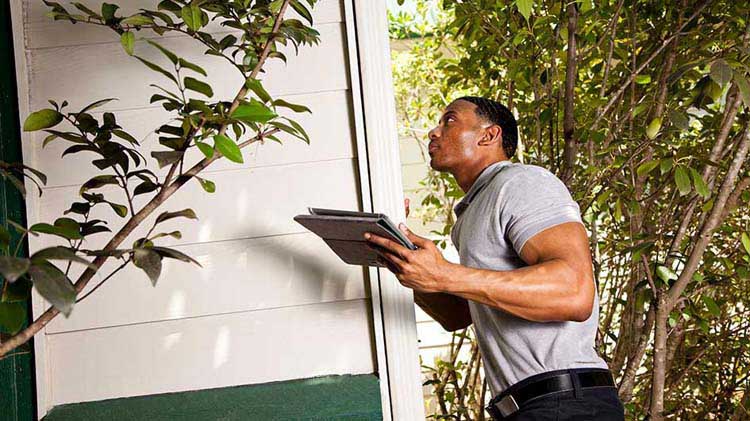How to choose a neighborhood that is right for you
The trick to choosing a neighborhood to live in is to figure out what matters to you and to do thorough research.
You probably know someone who loves the neighborhood where they live. They may have been drawn by the character of the houses, the accessibility to good schools, a walkable distance to parks and shops or any number of other factors. Not everyone wants or desires the same things when searching for a place to live. By doing the right reseach, you will be able to make an informed decision and pick the right neighborhood for you and your family.
Evaluate and prioritize when you pick a place to live
Narrowing down what is most important to you, your lifestyle and to your family helps when evaluating where you want to live. Whether you are up-sizing or down-sizing, start by being specific and choosing what's most important to you and your family. Decide what factors are "must-haves" and which are "nice-to-have".
Think ahead about your housing decisions. Clarify your financial goals and anticipated life events or plans. Consider how long you plan to live in the home and neighborhood you choose. Is it where you plan on living several years down the road?
Research is important and you should pay close attention to the neighborhood your potential home will be in. You may use websites like niche.com to see rankings and data related to schools, crime, income, cost of living and other factors for different cities and neighborhoods. Explore community or city websites to get a full picture of the area. Take a drive through the neighborhoods that you are looking to reside in and get a feel for the surroundings. Evaluate housing costs in the areas that interest you. The more positives a neighborhood has, the more likely housing costs more. Wherever you’re looking, talk to people who already live there to gain insight into what they like.
The trick is to review sought-after attributes, such as those houses and schools, and decide what matters most to you. You may not be able to find a neighborhood that has all of the characteristics you want, but you may find one that has a majority of them.
Factors to consider when picking a place to live
Whether you want to rent or buy a place to live, there are a few common things people look for. Here are a few things to consider before you make a decision.
Housing types, costs and property taxes
There are several types of homes you can rent or buy ranging from single-family to multi-family homes. Some styles include townhomes, apartments, condominiums, manufactured homes, one-story, multi-story and more. Understanding the costs, pros and cons of each is important in narrowing down your choices.
Size and style
Regardless of where you want to move, the number of bedrooms, bathrooms and space available is usually important to most people. Thinking practically and narrowing down the style and size of home you want to live in helps.
Price and budget
Some neighborhoods and housing types will cost more than others. Carefully examine and set a price range and consider your housing budget. This will help narrow down your choices and help you avoid spending more than you can afford. Be sure to budget for housing association or condo fees, insurance and property tax expenses, if they apply.
Location and walkability
Location is generally a top consideration and is usually just as important as the home itself. Do your research and consider distance from work, schools, public parks and stores. Also, consider access to public transportation and commute time.
Pets
If you have pets, find out if the property you are looking at is pet friendly and allows pets. Some rental properties do not allow them or require a large deposit to keep them in your residence. There are also some pet restrictions and rules in some housing associations and condominium units. Be sure to research what the rules are so your pets are safe and comfortable in their new environment.
Schools
Evaluating and researching schools and districts in the neighborhood you are looking to live is important. Being in a good school district with strong public and private schools, even when you don't have children, will help with property values. If you do have children, this is an important aspect of selecting a place to live.
Crime and safety
Finding a safe neighborhood with low crime rates is important to most people. Be sure to review crime stats in the area you are looking. Research information about how to determine if a neighborhood is safe. Some neighborhoods have a neighborhood watch or social media network to help raise awareness and to report possible issues in an area. Look at the community or city government websites or call to see if they have crime statistics reported. Don’t be afraid to ask pointed questions about the area you are looking to reside in.
Proximity to work and amenities
Distance from your job and commute time may be a driving factor in finding a home. Other deciding factors include access to public transportation and proximity to people and places. Some people value and prioritize the proximity of stores, medical facilities, churches, parks, restaurants, cafes, sidewalks, trails and more.
Diversity
The value of a diverse neighborhood is important to many home buyers. Many neighborhoods are geared toward families, with lots of single-family houses. Others offer different housing types, attracting a mix of generations or people with common lifestyles or interests.
Finding the perfect neighborhood for you means ranking all the factors, figuring out current and future goals, and striking a balance. A State Farm® agent may be able to help you find the right insurance for your needs before and after your move.




